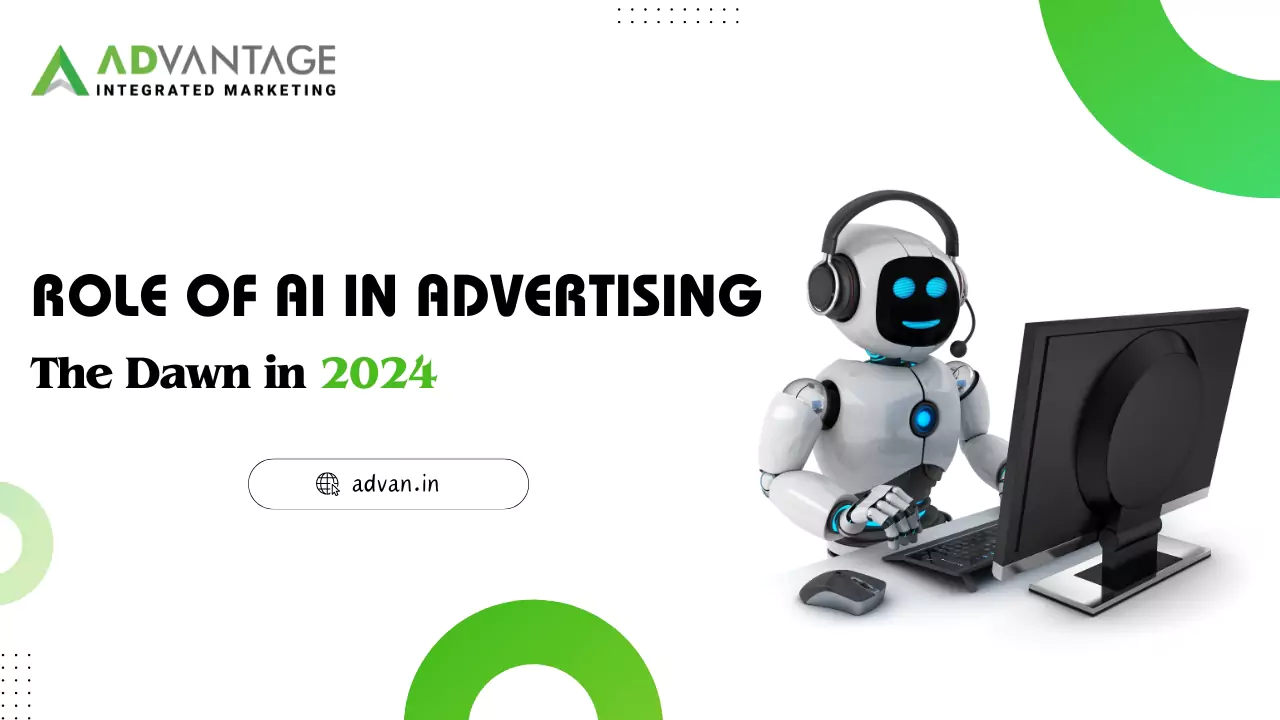Initially the world saw AI as simple algorithms capable of performing basic tasks, much like a child learning to walk. As technology progressed, so did AI, transitioning through various stages of development. The 1980s and 1990s marked significant milestones with the introduction of machine learning and neural networks, laying the groundwork for today’s sophisticated AI systems. This blog of AD Vantage would dive into the role of AI in advertising landscape.
The turn of the millennium brought with it a new era of AI, driven by unprecedented amounts of data and advancements in processing power. AI began to showcase its potential beyond academic circles and theoretical constructs, seeping into real-world applications. This period saw the evolution of AI from a rule-based, logical entity to a more adaptive and learning-driven technology. Machine learning algorithms, fed with vast amounts of data, started to learn, grow, and make decisions, mirroring human-like intelligence in ways previously thought impossible.
What is AI advertising?
The integration of AI algorithms in into advertising strategies is called AI advertising. It marks a significant shift in the way brands engage with their audiences. This fusion brings a level of precision and personalization previously unattainable in traditional marketing methods.
How is AI used in advertising and marketing?
Initially, AI in advertising was primarily used for data analysis and customer segmentation. However, its role quickly expanded, thanks to its ability to process and analyze vast amounts of data at incredible speeds. AI systems could identify patterns and insights from customer behavior, enabling advertisers to tailor their campaigns more effectively.
The real game-changer was the introduction of AI-driven predictive analytics and automated decision-making. Advertisers began leveraging AI to not only understand past consumer behavior but to also predict future trends.
For instance, Facebook utilizes AI as a vital tool that focuses exclusively on Facebook user behaviour.This AI program considers hundreds of other factors, including how we behave after seeing a specific advertisement, what we buy, how we buy, whether the advertisement is useful to us, what we ignored, why we ignored it, whether it is worth it, and even what we will think before purchasing.
This predictive capability allows for more dynamic and responsive advertising strategies, aligning closely with consumer preferences and behaviors. Furthermore, AI-powered chatbots and virtual assistants began to transform customer service, providing real-time, personalized interactions with customers, enhancing engagement and improving brand loyalty.
What is the role of AI in advertising?
How is AI used in advertisements? Let’s check out the benefits of AI in advertising.
Enhanced Personalization
One of the most significant benefits of artificial intelligence in advertising in advertising is its ability to personalize content at scale. With AI, advertisers can create highly targeted campaigns that resonate with individual consumers. This level of personalization extends beyond mere demographics, delving into consumer behaviors, preferences, and even emotional responses.
AI analyzes data from various touch points, enabling advertisers to craft messages that are not only relevant but also timely and contextually appropriate.
Dynamic Content Optimization
Another aspect of enhanced personalization is dynamic content optimization. AI algorithms can adjust the content of ads in real-time based on user interaction, ensuring that the message remains relevant and engaging. This adaptive approach results in higher engagement rates, improved customer experiences, and ultimately, a higher return on investment for advertising campaigns.
Efficient Campaign Management
AI in marketing revolutionizes campaign management by automating mundane and repetitive tasks, allowing marketers to focus on more strategic aspects of advertising. AI tools can manage bidding, optimize budgets, and adjust campaign parameters in real-time, ensuring maximum efficiency and effectiveness. This automation leads to a more consistent and optimized campaign performance, reducing human error and operational costs.
Advanced Analytics
Role of AI in advertising also provides deep insights through advanced analytics, enabling advertisers to understand campaign performance at a granular level. These insights guide strategic decisions, allowing for quick adjustments and improvements to campaigns. This level of agility and precision in campaign management was previously unattainable, showcasing AI’s transformative impact on advertising.
AI Advertising in 2024
As we move into 2024, AI is sure to bring about more groundbreaking changes in the advertising sector. One of the most anticipated developments is the advancement of AI-driven augmented reality (AR) and virtual reality (VR) experiences in advertising.
These technologies, powered by AI, are expected to create immersive and interactive ad experiences, hiding the lines between digital and physical worlds. This will not only enhance user engagement but also open new avenues for creative storytelling and brand interaction.
AI will target advertisements at prospective buyers will assist in directing their search while they are researching a product during the “consideration” phase.
Another major development is the rise of AI-powered voice search and voice-activated advertising. As voice assistants become more prevalent, AI will play a crucial role in optimizing content for voice search and creating voice-responsive ads. This shift will require a new approach to content creation and SEO, focusing more on conversational language and user intent.
Artificial intelligence is set to enhance predictive analytics, moving beyond basic consumer behavior predictions to more nuanced and sophisticated forecasts. This will involve predicting market trends, consumer sentiment shifts, and even socio-economic changes, allowing advertisers to stay ahead of the curve.
To wrap up, the fusion and role of AI in advertising is not just a trend; it’s a paradigm shift that is reshaping the entire landscape of marketing. As we have seen, AI brings a multitude of benefits, from enhanced personalization to efficient campaign management.
The future of AI in advertising, particularly 2024, looks even more promising with advancements discussed in this blog. This evolution is a huge opportunity for advertisers and marketers: to adapt, innovate, and explore artificial intelligence not just as a tool, but as a fundamental component of their strategic arsenal.
As AI continues to evolve, so will the opportunities for those ready to harness its potential. The journey of role of artificial intelligence in marketing is an exciting one, filled with limitless possibilities and the promise of transforming how we connect, engage, and inspire consumers worldwide.
Want to know about the latest trends in advertising? Follow us on Instagram.









0 Comments